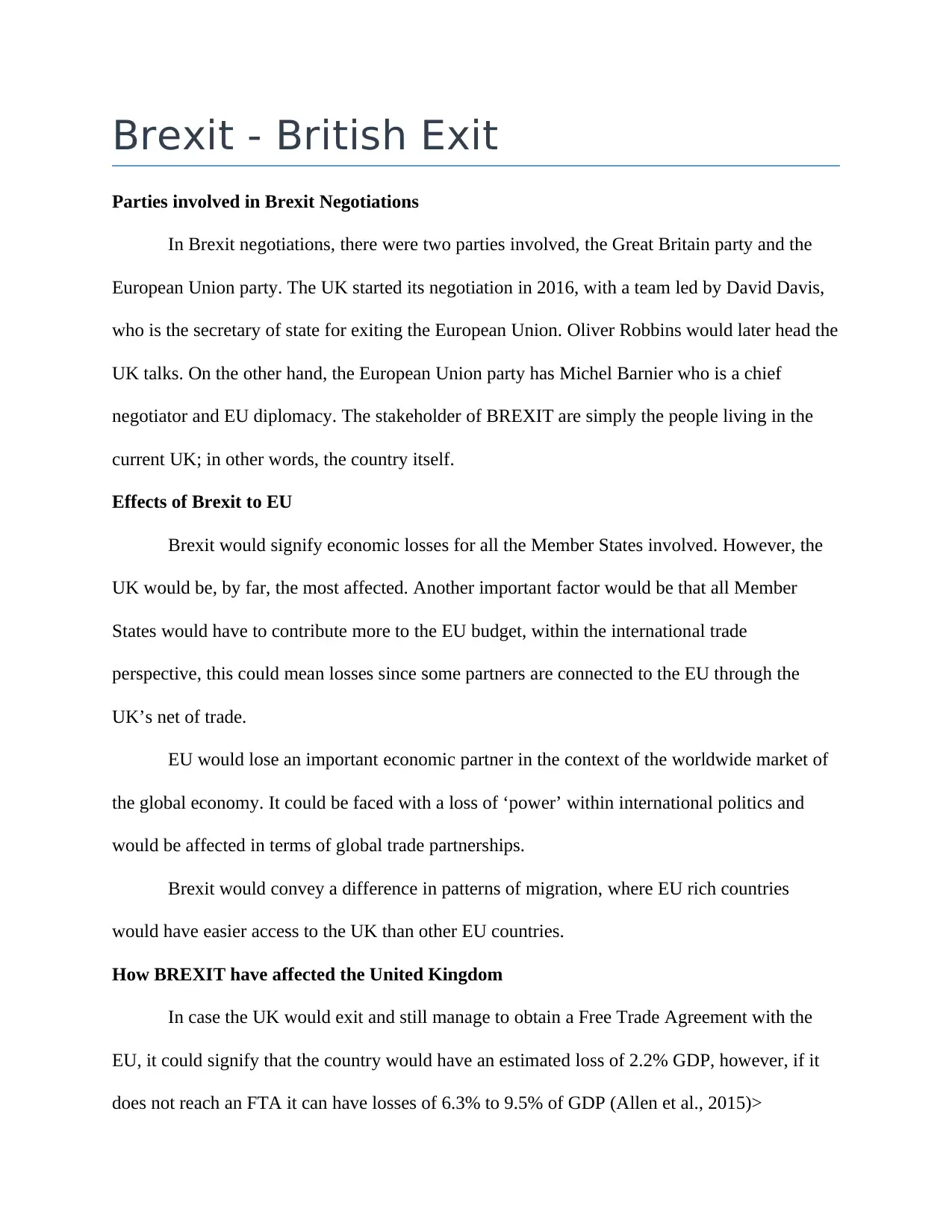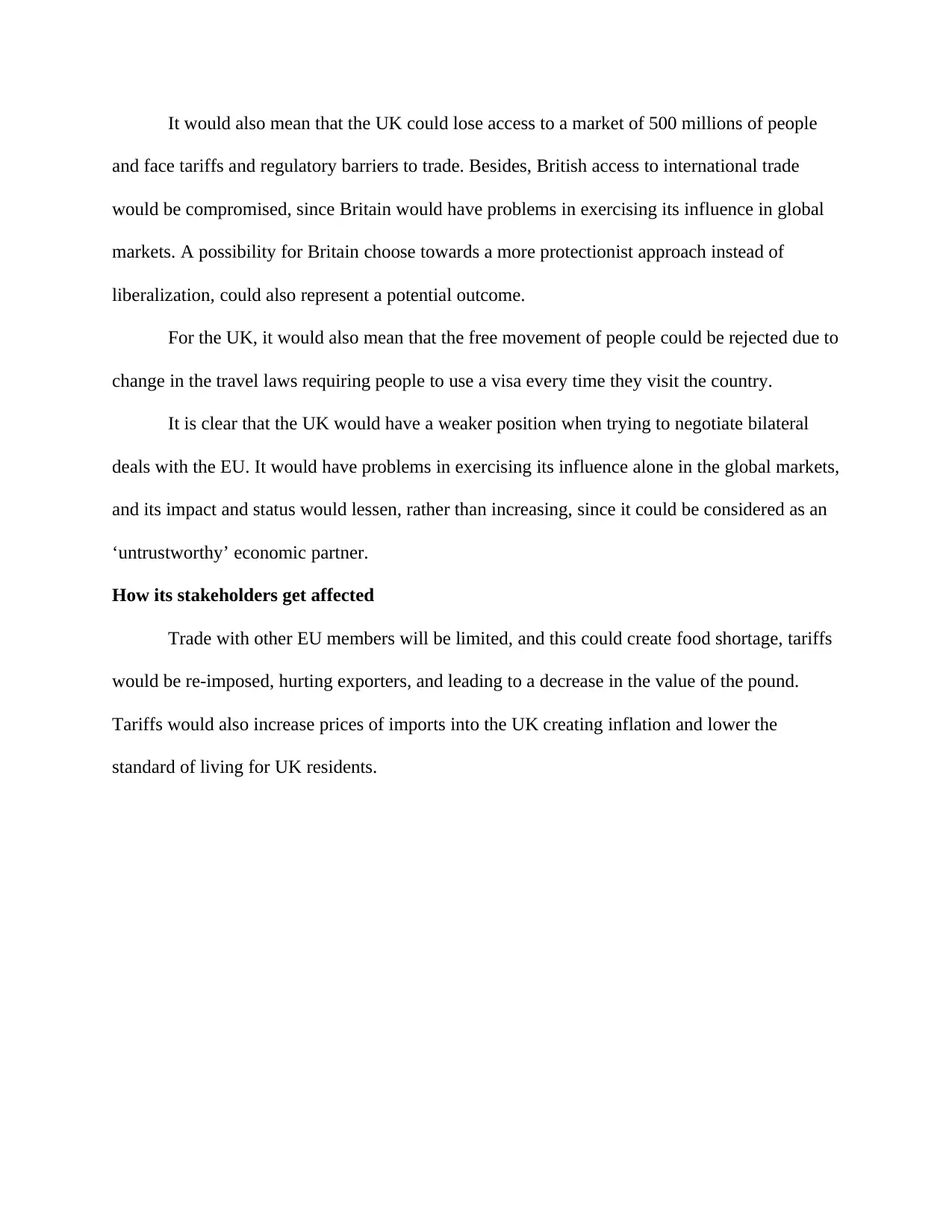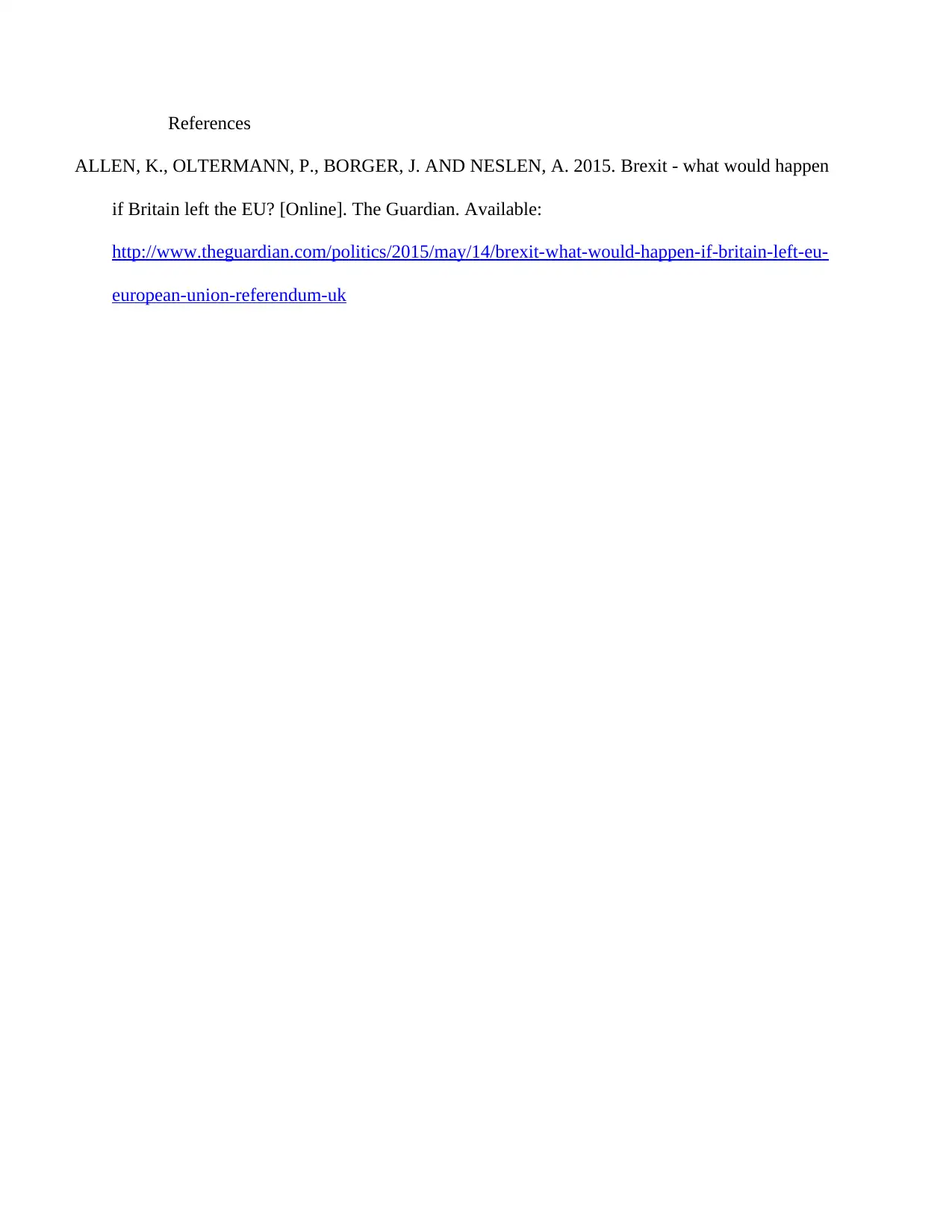Brexit Analysis: Negotiations, Impact on UK, EU, and Stakeholders
VerifiedAdded on 2023/04/22
|3
|602
|459
Report
AI Summary
This report provides an overview of the Brexit process, detailing the key parties involved in the negotiations: the United Kingdom and the European Union. It highlights the roles of prominent figures like David Davis, Oliver Robbins, and Michel Barnier. The report explores the economic effects of Brexit on both the UK and the EU, including potential GDP losses, trade barriers, and impacts on international trade partnerships. It examines how Brexit could affect migration patterns, trade with other EU members, and the UK's global influence. Furthermore, the report discusses the stakeholders affected by Brexit, such as exporters, importers, and UK residents, and how they might face challenges like food shortages, tariffs, and inflation. The report concludes by referencing the potential for the UK to adopt a more protectionist approach and the implications of changes in travel laws.
1 out of 3










![[object Object]](/_next/static/media/star-bottom.7253800d.svg)